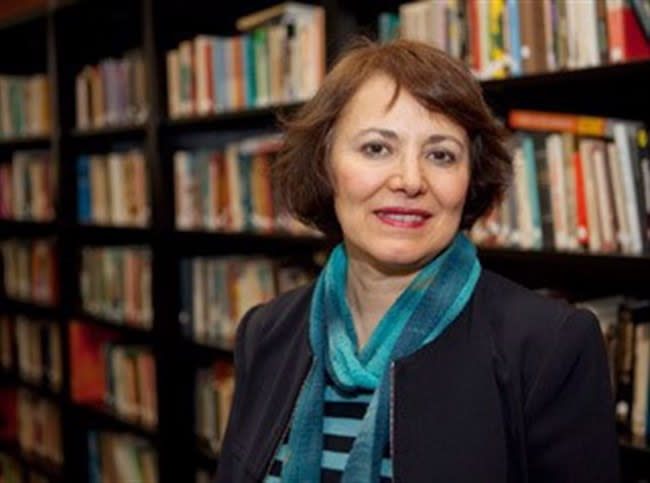 Daily Brew
Daily BrewQuebec prof not only Canadian in Tehran’s ‘black hole’ prison

[Homa Hoodfar, 65, is shown in this undated image provide by her family. THE CANADIAN PRESS/HO]
The arrest and imprisonment of a Concordia University professor brings to five the number of prisoners with connections to Canada being held by the regime, says Amnesty International Canada.
Homa Hoodfar, 65, was re-arrested last Monday and is being held at the notorious Evin prison, where Canadian-Iranian photographer Zahra Kazemi was tortured to death in 2003.
“All of these cases need resolution,” says Alex Neve, secretary general of Amnesty in Canada.
Saeed Malekpour, a permanent resident who lived in British Columbia, has been in Evin prison since October 2008.
Mostafa Azizi, also a permanent resident, was arrested in February 2015. He was released earlier this year but remains in Iran, where “there are still concerns about his safety.”
Mohammad Ali Taheri, an Iranian spiritual teacher with a number of Canadian family members, has been in solitary confinement for five years.
And Hossein Rafiee, a scientist and writer whose daughter is a permanent resident of Canada, has been in Evin prison for a year. Seven Nobel laureates are among 300 scientists who have demanded his release.
Canada closed its Iranian embassy in 2012 and the lack of diplomatic ties has complicated negotiations for their release, Neve says.
“On a practical level, it’s complicated because we don’t have an ambassador in Iran to send around to the relevant government offices and make interventions; we don’t have an ambassador to connect with and rally other ambassadors to help us out,” he tells Yahoo Canada News.
But the new federal government has made it clear it is its intention to restore diplomatic relations, he adds.
“That may well offer a very important opportunity,” Neve says. “This needs to be put at the very forefront of those conversations.”
‘A lot of worry’
Her lawyers and family so far have not been able to meet with Hoodfar, an anthropologist with dual citizenship in Canada and Iran. She was there mainly for personal reasons and “conducting historical and ethnographic research on women’s public role,” her family says.
“There’s a lot of worry because she’s a 65-year-old woman who has some health problems,” Neve says. “She had a minor stroke last year; she has a condition that requires ongoing medication and she’s being held in Evin Prison.”
Evin is a “black hole,” says Marina Nemat, the Iranian-born Canadian writer who recounts her own story of surviving the notorious facility in the best-selling memoir “Prisoner of Tehran.”
Nemat was 13 when the revolution ushered in a new era of strict Islamic rule.
“I was just your average teenager,” she tells Yahoo Canada News. “I just wanted to party and have fun… and suddenly dancing, singing, having fun became illegal.”
She was 16 when she was arrested in 1982 and spent the next three years in prison, where she was tortured and raped.
“It hasn’t changed,” she says,
The hundreds of people in Evin — most of them Iranians with no one clamouring for their release — are “hostages,” she says.
The arrests are always to create fear, she says.
“They were beating me up; they were raping me. They threatened my family,” she says. “I did whatever they told me to do. If they told me to sign something, I signed it. If they told me to confess to something, I confessed to it.”
Nemat believes that Hoodfar’s dual nationality will provide her some protection.
Since Kazemi’s death in 2003, no dual citizens have died in Iranian custody, she says.
“What happened to Zahra was horrific,” she says.
“Because Zahra was a dual-national, because it made headlines all over the world, suddenly the world became aware of what was going on in Iran and is still going on.
“Recently Iranian officials have not been physically torturing dual nationals, simply because they use them as hostages and they want to trade them for something… and they don’t want the bad publicity.”
Neve says there has been a crackdown in Iran in recent years, despite expectations following a much-lauded nuclear accord with the United States that saw sanctions lifted after 37 years.
There is no logical explanation for what prompts arrests, he says.
“That’s illustrated very dramatically in professor Hoodfar’s case. There’s absolutely nothing about her that would draw attention to her, that would provoke this kind of reaction from the Iranian government, but here we are.”

